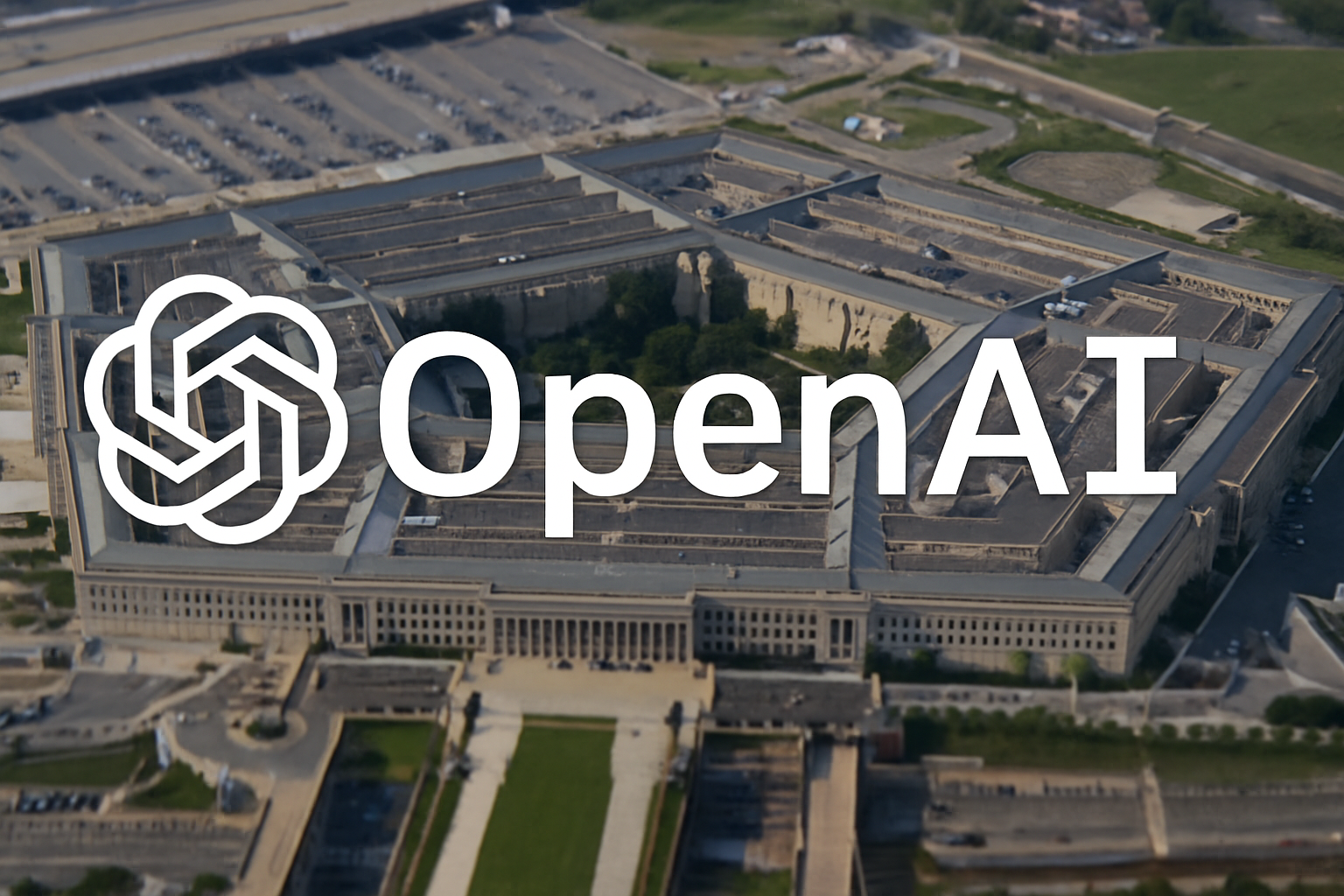OpenAI wins a $200 million DOD contract
The U.S. Department of Defense has awarded OpenAI a one-year, $200 million contract. The project will develop prototype “frontier AI” tools aimed at solving national security challenges. Work will be based primarily around Washington, D.C., and is scheduled to finish by July 2026.
“OpenAI for Government”: a new initiative
To oversee this and future public-sector projects, OpenAI launched OpenAI for Government. This new program brings together previous efforts such as ChatGPT Gov and earlier partnerships with NASA, the Treasury, Los Alamos, and the Air Force Research Lab.
Scope: beyond cyber, into “warfighting” and admin
The contract isn’t limited to cybersecurity. It also includes tools for:
- Warfighting – improving battlefield operations and decision support
- Enterprise use – handling healthcare, procurement, logistics, and internal government systems
All use cases must comply with OpenAI’s updated policy, which bans weapons development and systems that directly cause harm.
Policy shift: from ban to guardrails
In January 2024, OpenAI removed a clause that banned military applications. Instead, it introduced a broader policy against “harmful uses.” This opened the door for defense work that supports but does not directly involve combat or weapons systems.
Why it matters
- OpenAI outbid 11 competitors for the contract.
- Analysts at William Blair said the deal ranks among the largest AI software contracts in U.S. defense, comparable to Palantir’s annual revenue from military work.
- Other tech giants like Google, Meta, Anthropic, and Microsoft are also competing for similar deals.
Past context
This isn’t OpenAI’s first government project. Earlier work includes:
- Cybersecurity collaborations with DARPA
- Deployment of code analysis tools for AFRICOM in Africa
- Ethical policy restructuring to align with national defense frameworks
Executives like Kevin Weil are now part of military reserve units such as Detachment 201, blending tech and defense experience.
What it means for AI and defense
Use cases go far beyond weapon systems. AI tools are expected to:
- Detect cyber threats faster through automation
- Flag irregularities in large equipment datasets
- Streamline administrative burdens and medical triage systems
- Help analyze battlefield data and recommend logistics strategies
Risks and oversight
- Safety – Tools will avoid direct harm, but ethical oversight is critical.
- Transparency – Watchdogs are calling for documentation on testing and deployment methods.
- Ethics – There’s ongoing concern about accountability and fairness in high-stakes decision systems.
Real-world insights
A defense analyst told me at a dinner, “AI is already helping us flag weak links before they blow up.” That sums it up. It’s not about missiles—it’s about maintenance and monitoring.
Someone from an Air Force lab shared a story about an AI tool that analyzed months of logs in minutes. It flagged mechanical risks that humans might have missed. That kind of time-saving could reduce equipment failures and risk exposure.
Long-tail keywords shaping the conversation
Look out for terms like:
- “Government AI integrations”
- “Prototype frontier AI tools”
- “AI-enabled logistics systems for defense”
These keywords reflect how AI is being designed for targeted use cases—not just general intelligence, but real systems that tackle bureaucracy, planning, and security.
What to track next
- Will OpenAI continue bidding for more federal and state contracts?
- How far will “warfighting” applications go without crossing ethical lines?
- What safety benchmarks and standards will govern these tools?
- How will competitors like Anthropic and Palantir respond?
Takeaways for different sectors
- Government agencies should investigate OpenAI’s services for internal efficiencies.
- Contractors should prepare to offer AI integration and auditing services.
- Ethics leaders must stay engaged to help define what counts as safe and responsible deployment.
- Policy analysts should monitor how OpenAI’s position shifts over time.
Final thought
OpenAI’s move into defense isn’t theoretical. It’s happening. The systems aren’t building weapons—they’re helping support complex decisions and operations. That makes this not just a story about tech, but about responsibility, risk, and how public AI gets built.








